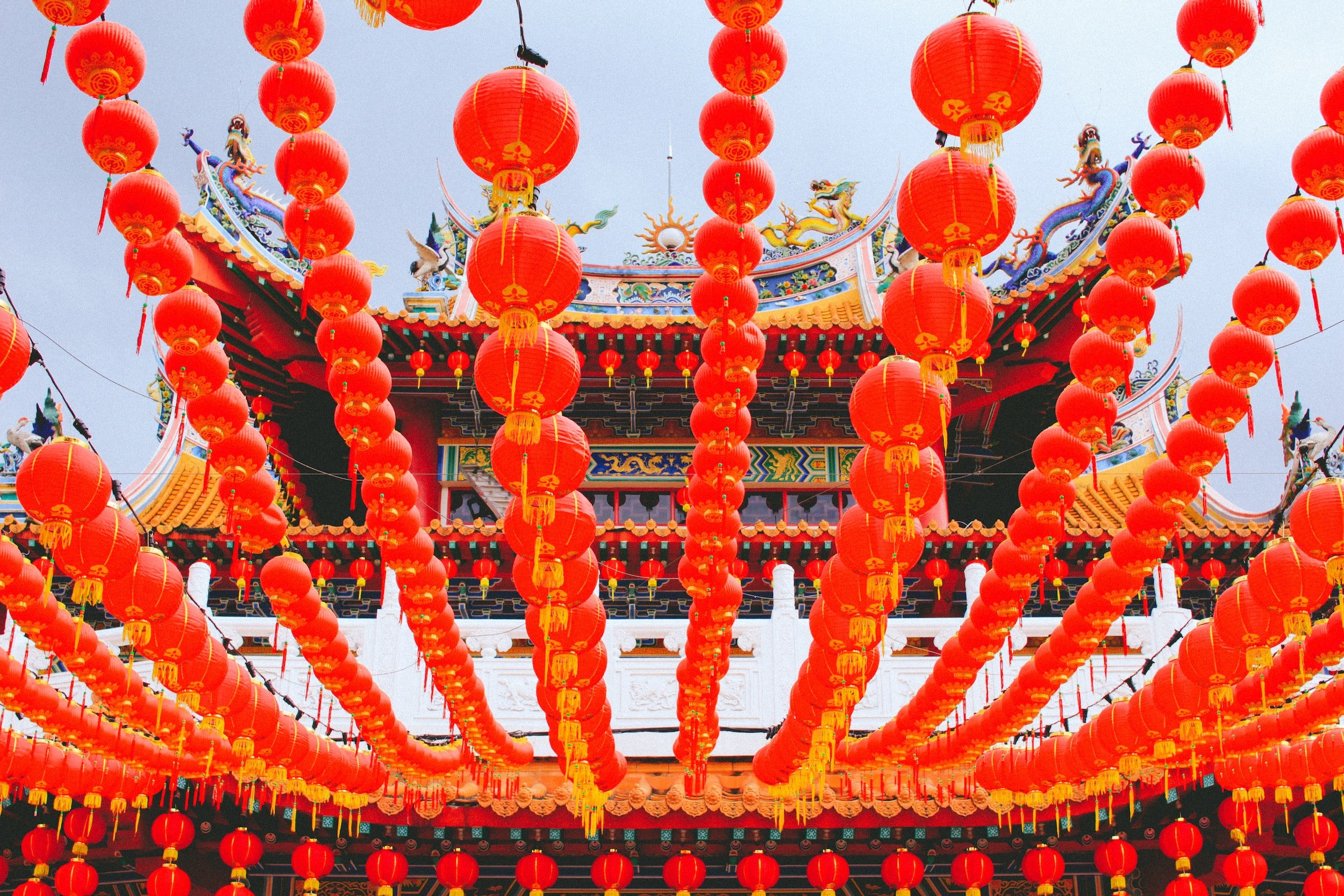
Editor’s note: We recently interviewed Hannah Nation, editor of the new book Faith in the Wilderness, a collection of pandemic sermons preached by Chinese house church pastors in the first months of the pandemic. She talked with us candidly about how Chinese Christians have a different understanding of suffering with Christ than Westerners tend to, and how she was personally challenged and encouraged by them in editing this book.
This is the first of a two-part series; the interview has been edited and condensed for clarity and length.
The Christian Life Involves Suffering with Christ
China Partnership: What do Chinese house church Christians have to say to us?
Hannah Nation: Chinese Christians are bold in saying the Christian life involves suffering with Christ and participating in the suffering he endured while on earth. That goes against everything American culture tells us about our expectations for life. Our culture preaches that the right expectation is comfort, ease, and well-being. We live in a fallen world, we are fallen people, and suffering is inevitable – suffering physically through health problems, suffering we all experience through conflict, the suffering of putting sin to death sin in our lives.
>
”“Chinese Christians are bold in saying the Christian life involves suffering with Christ and participating in the suffering he endured while on earth. That goes against everything American culture tells us about our expectations for life.”
There are many ways we as individuals suffer, and there are also ways we suffer corporately. For example, the pandemic. We don’t really need to come up with any more examples. Suffering happens on both large and small levels. As Americans, we rationally know that, but when we find ourselves in realities that cause us to suffer, we are poorly equipped and have a visceral reaction. Our entire society tells us this is not supposed to be happening. We can’t handle it; our identity as Americans is challenged when we start to suffer.
Never miss a story
That was my experience of the pandemic. We as a family dealt with a lot of hardship, and even though rationally and theologically I knew this was a normal part of life, my lived experience was, “This is wrong.” It was a blessing for me to be marinating in material from brothers in China who are more able to look at the realities of life and say, “This is normal, because we live in brokenness.” They don’t call it good, but they are able to see it as normal. It is what life looks like this side of heaven.
So much of the first three chapters of Faith in the Wilderness are this naming of the problem, which is so important when dealing with suffering. Once you’ve been able to name the brokenness, to look it in the face and say it is real, then you can start to talk about redemption.
The Chinese ability to understand suffering as part of the Christian walk is the underpinning to responding graciously to persecution and suffering. If you are being persecuted, and you think that is part of what it means to be united with and in fellowship with Christ, you are more equipped to forgive the person who is persecuting you and to respond in the power of the Holy Spirit to preach the gospel to that person. If you are caught up thinking about all the ways this is wrong and someone is wronging you, it is tempting to hold onto anger and bitterness. It blows my mind how, when Chinese pastors are arrested, many respond with this attitude of, “Well, now is the time to go preach the gospel – not only to the prostitutes and drug dealers I’ll be imprisoned with, but also to my interrogators and persecutors.” You can only have that attitude if you believe suffering with Christ is part of your Christian calling. If you are trying to escape suffering with Christ, you will go into those situations with a different approach and attitude.
>
”“Part of what forms the Chinese response to persecution is seeing it as one of many expressions of suffering in life… If we can faithfully respond in one situation, we can also faithfully respond in another.”
Right now, in the West there is a lot of anxiety among Christians about the future of our culture. There is fear of the world and of what the world might do to us. It is an important time to be learning from those who are more mature in their understanding of how to interact with a world that is actively seeking to harm them.
An Antidote to the Prosperity Gospel
CP: You mentioned the connection between suffering and persecution. In one of the sermons, Noah Wang talks about intense personal suffering when his infant son was diagnosed in utero with a serious birth defect. Just as predicted, the baby died shortly after birth. Then Wang moves from that talk of personal suffering and closes his message by talking about witnessing the raid of a church he knew; sisters were being beaten and children were screaming. It’s not a hopeful, optimistic, “Jesus will make your life better” kind of message, yet this sermon is in the section Meditations on Hope.
Is this the anti-prosperity gospel? What is the Chinese house church theology of suffering?
Hannah: So much of what is coming out of China is a much-needed antidote to the prosperity gospel. The more I interact with Chinese house churches and listen to their theology, the more I realize how much the prosperity gospel has gotten its tentacles into American Christianity. It is easy for us to fall into the idea that, if God is for us, he will bless us. Scripture does say that, but in American culture, we immediately translate that into material prosperity. We are unable to imagine God’s blessings being anything other than health and wealth. Even if we are preaching a biblically accurate message, our culture and our level of prosperity and ease is such that the way we interpret that message is immediately wrapped up in the American dream of prosperity.
Chinese brothers and sisters also believe God is for them and is blessing them, but they don’t immediately move to that being defined by a certain degree of health and wealth. Even apart from persecution, life in China can be very competitive and cut-throat. There is a lot of financial and medical and physical insecurity. God’s blessing has to mean something other than a prosperous, middle-class life.
>
”“It is easy for us to fall into the idea that, if God is for us, he will bless us. In American culture, we immediately translate that into material prosperity… Chinese brothers and sisters also believe God is for them and is blessing them, but they don’t immediately move to that being defined by a certain degree of health and wealth.”
That is not just China. If you listen to the global church throughout most of the world, and also throughout most of history, wealth, prosperity, comfort, and ease have not been the markers of a good Christian life. We need a definition of the good Christian life outside of the wealth and comfort America lives in. We need an understanding of what a blessed life looks like that isn’t having two cars, a house with a yard, and a medical system that’s going to take care of all of your various problems.
Part of what forms the Chinese response to persecution is seeing it as one of many expressions of suffering in life. Persecution is not categorically separated out from something like having your infant son die. If we can faithfully respond in one situation, we can also faithfully respond in another. The Chinese understanding is holistic. Persecution is not categorically different from other ways Christ calls us to walk the way of the cross.
That is part of how the Chinese church has endured multiple great hardships in the last couple of years. They are persecuted. They have also endured some of the hardest restrictions regarding Covid, both at the beginning of the pandemic and recently. They have not bifurcated these two realities. In the American church’s response to any sense of marginalization or persecution, and also to things like the pandemic, there has been a defensive posture of needing to fight for ourselves. In America, similar to China, our responses to these things have mirrored each other.
In China, I have seen people act with boldness, but in grace. They are bold in their commitment to preach the gospel through the pandemic, making risky decisions. But they take the risk onto themselves, while submitting fully to the government. There is an understanding of the posture of Christ in that, and it comes only through the ability to accept suffering. It only comes with the ability to say, “We will be the church. We will follow Christ. We are not going to compromise, but we must suffer in doing these things.”
Hannah Nation is the Managing Director of the Center for House Church Theology. A prolific writer and student of missions history and World Christianity, she is inspired by this historical moment and the privilege of witnessing a new chapter in church history unfold across China.
FOR PRAYER AND REFLECTION
Pray that Western Christians will learn from and take to heart the words of Chinese Christians.



































